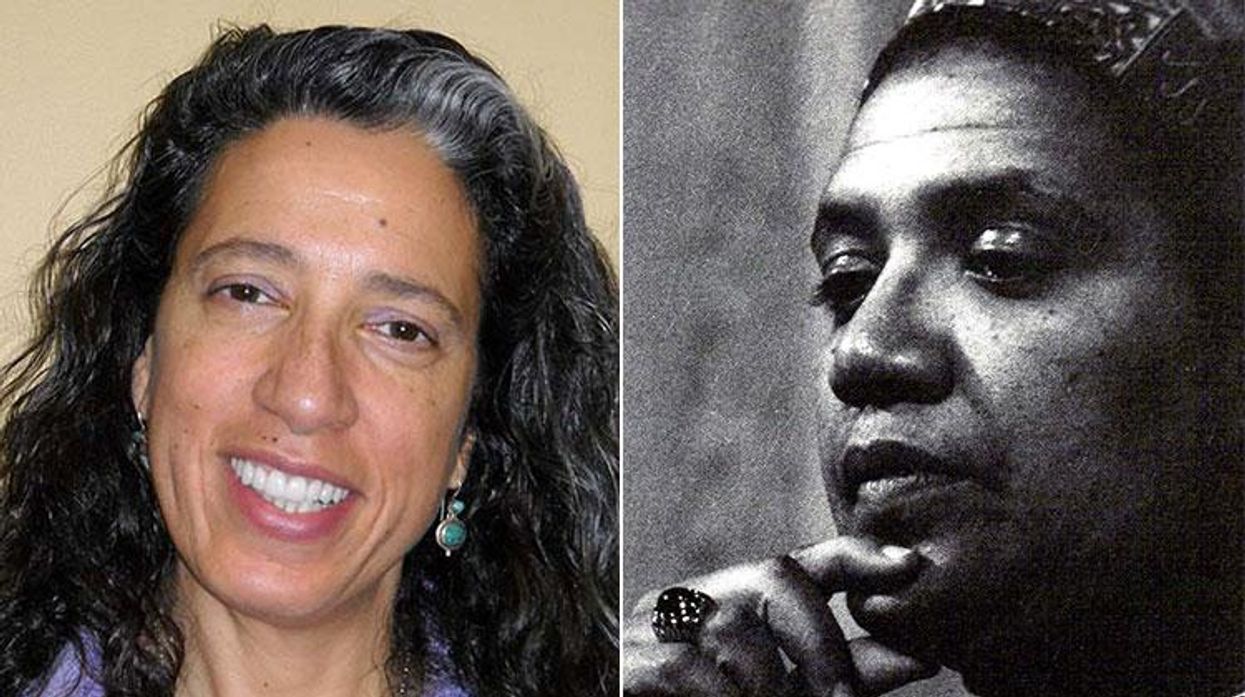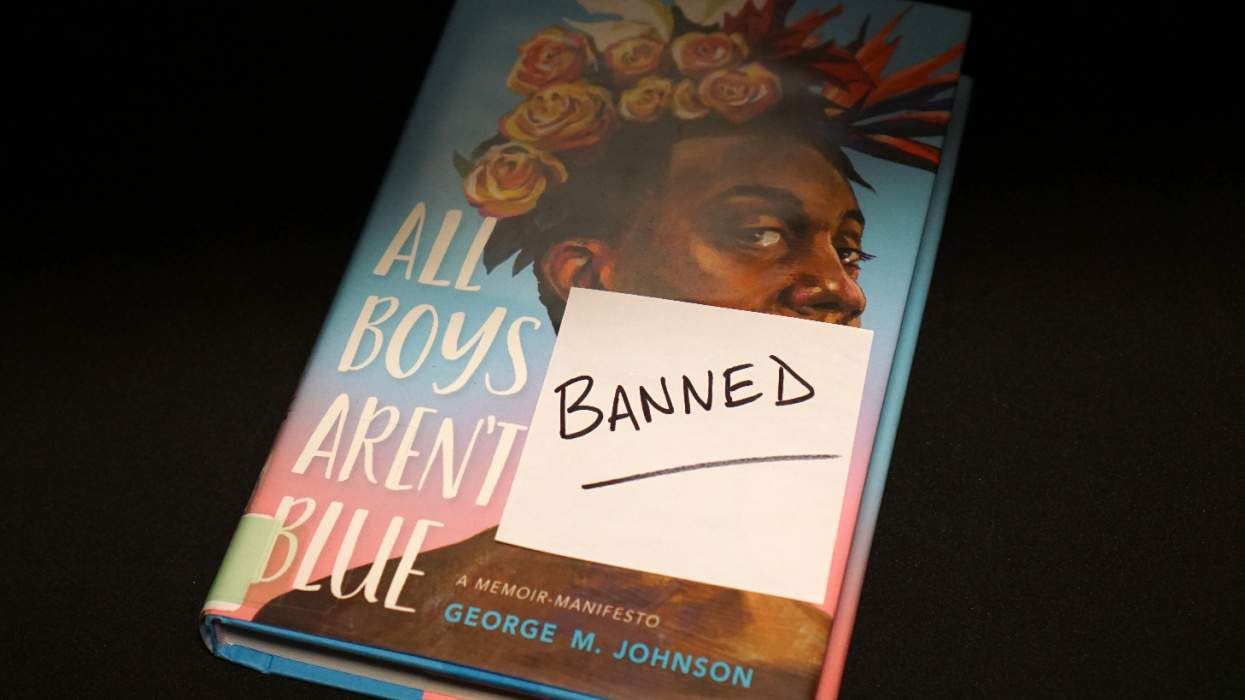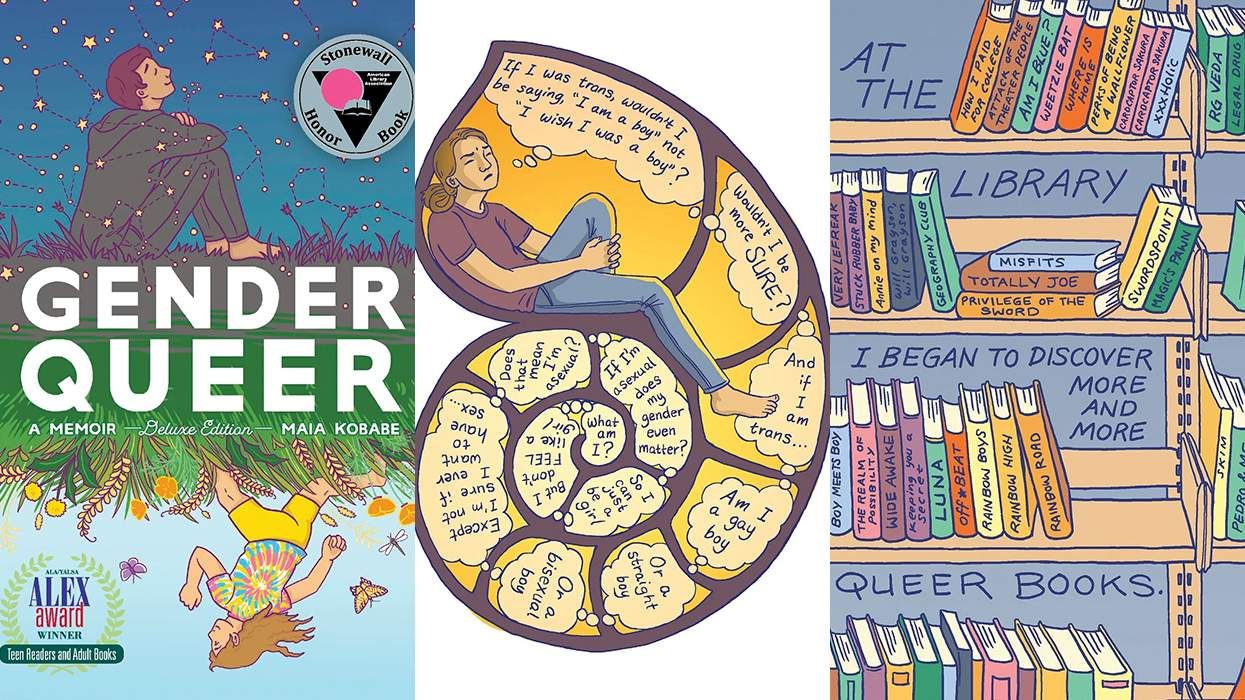This is a tale of two kitchens and a bathroom. It's the story of how I met Audre Lorde.
At 16, I knew my Mom. You might say we both felt that we knew each other too well then, in the late '70s. In the spring, shortly after my 16th birthday, my mother turned to me in the kitchen one morning and said, without an ounce of joke in her serious eyes (my mother was not in the habit of joking), "One of us will not survive the summer if we both remain in this house. And I know I'm not going anywhere. So you're going to go to San Francisco. I've spoken with Diane and she said it will be fine if you stay with her."
My Mom drove me to the airport --- I left out of Newark a week after school ended. I would be gone until the third week in August. I was really upset about leaving my job (I was in love with a woman who worked there, and although we had slept together once, she had told me we would be just friends from now on. I talked myself into believing that she would miss me so badly she'd fall into my arms when I got back.) I was also pretty pissed about leaving my boyfriend --- we had a lot of plans for hanging out at the beach and getting high, but he assured me we'd just have to pack a lot into the last two weeks of summer. All sophomore year, he had witnessed the morning tears at school as I'd recounted my latest battle with my Mom, and his first reaction to what she'd told me kind of surprised me: "She's doing you a favor. You guys might really kill each other if you stayed.
###
With a quick click of the single lock (in the city?! Unheard of), we were in a long hallway just off of Diane's living room. From the door, I could see beautiful but worn Persian rugs, elaborate lamps draped with fabric, dust motes glinting in the sun from the bay window facing Page Street--- it all seemed sweetly familiar. The air in the apartment was peaceful and warm. I halfway expected to see toddler versions of myself and her children tearing bare-assed down the hallway, just as we had in the East Village over ten years before. Diane and her brood had moved to San Francisco from the East Village three years before that. Their family and home were an interesting mix of revolution and formality --- a mix I was acquainted with in my own household, but it played out here in very different ways.
My mother was a great proponent of naked children, and she couldn't stand people who considered either naked children or public breastfeeding inappropriate, but once people reached late childhood, she was a fan of dressing and considered it a mark of respect. My brother and I were raised with impeccable manners, so much so that 40 years later I still thank waiters profusely, addressing them as "Sir" and "Ma'am" even though I am a middle-aged woman and rapidly becoming an old one. The first time I heard my mother curse was when she was reading one of her poems. My brother and I had chores, were taught the exact science of ironing a dress shirt, were taught to cook and then assigned meals for which we were responsible. We were taught how and then paid to clean the house. We were expected to be reachable at all times --- before cell phones. We had a nightly curfew. We were restricted to a half hour of TV a day. In short, there were rules, and a lot of them, in my mother's house. And I experienced both my Mom and Frances as suburban parents, exactly the same as my friends' parents, except they expected my brother and me to do more stuff around the house than I saw my friends doing. I used to accuse my Mom and Frances of being complete hypocrites. The world thought they were revolutionaries; I knew they were Ozzie and Harriet. Or Harriet and Harriet.
But Diane: Her apartment was not nasty, but it was dusty. Things were scattered about. Putting clothing on was apparently optional in the public areas. And within an hour, Diane had left the apartment. No one asked where she was going, and she didn't volunteer. This too was different from my house. I took in my new surroundings: there wasn't a lot in the refrigerator. The sink was full of dirty dishes, and no one seemed to be concerned about or afraid of being punished for it. There were Bay Alternative newspapers in the living room, but no New York Times on the kitchen table. The counters here had ashtrays and pretty rounds of polished agate with straws and razor blades nearby (I found out what those were for later), matches and packets of rolling papers. The ceilings were high, the paint was old, the floor was a worn but beautiful wood. It smelled good in Diane's apartment, in spite of everything being in disarray: of incense and Thai stick and many, many old books, lining the hallway on shelves that ran the entire length of the apartment.
In the second week of my stay, I had run through the book I'd brought with me --- Stephen King's The Stand --- and I was desperately seeking something to read. I'd always found it almost impossible to go to the bathroom without reading. I scanned the shelves on my way to the end of the hall. I was almost at the bathroom when I saw them --- they were books by my Mom. It was the front cover of "Cables to Rage" that caught my eye. How I knew that look --- thank God, it was not often directed at me. And that black lambskin coat, the one that my Mom wore until it practically fell apart she'd loved it so much. And those glasses! The 60s personified.
I'd been going to my mother's readings since I was five years old. I liked the poems I thought were funny --- but there weren't many of those. There was one called "The Dozens," and there was one called "I'm So Glad to Be Moving" that talked about how people listened into toilets. I liked that one too. There was one that talked about my homework. That was OK. And of course there were the love poems to us, to Jon and me. Mine was called "Now That I Am Forever with Child." Jon's was called "As I Grow Up Again." Most of the other ones were pretty scary. They talked about --- well, I really didn't know what they were about, just that they scared me. They could be a little confusing, too. I had gone to one reading that my Mom had done with Adrienne Rich at the Donnell Library in the early 70s. My Mom was really dressed up --- she looked gorgeous in her gele and matching dress. But then she started to read, and her brow furrowed up, and her voice got loud, and I could see her grip the podium with her strong arms and fingers. One of the poems she read that afternoon, and I think I was about eight years old, started out "To My Daughter ... ," and I thought Great! She wrote another poem about me!, but the rest of the title was "The Junkie on a Train," and I was pretty sure that wasn't about me. Or did it mean that I would someday be a junkie on a train? It ended with a line about how we threw out our kids who turned into junk, so it sounded like my Mom was saying don't be mean to the junkies on the train, but I couldn't be sure.
All of these childhood impressions came back to me as I held "Cables to Rage" in my hands. But that is just what they were --- impressions. I'd never read my mother's work, though I loved poetry. My Mom's books were all over our house. I'd been in her office, filing her correspondence, while she fought with her editors at Norton about the artwork for Coal; I'd heard her and Frances talking about how the Between Ourselves book should be handled --- the publisher wanted the poems to run contiguously, and my Mom was adamant that each needed its own page. So it wasn't like I didn't know my Mom was a poet. It was the first thing she said when she talked about her work --- but I thought of her as my Mom, who had a job as a teacher so that she could get the summers off to be with us, and who also loved and wrote poetry. When I was having problems with math, she quoted "Euclid Alone Has Looked on Beauty Bare" as I sat in the living room crying over my graphs and rays; when I was in extremis over junior high girls teasing me, she looked at me over the top of her glasses and recited:
"I'm nobody! Who are you?
Are you nobody, too?
Then there's a pair of us -- don't tell!
They'd banish us, you know.
How dreary to be somebody!
How public, like a frog
To tell your name the livelong day
To an admiring bog!"
Poetry was part of who my Mom was, and it was part of the mother she was, too. She cuddled intensely; she cooked and fed us intensely; and yes, she got pissed intensely. But I had never met the lesbian feminist icon, Audre Lorde. I had seen her hammer out actions and position statements with Beresford Jones at John Jay in the summer of 1970, but I had never read the words of Audre Lorde, revolutionary poet. And I had seen how she and Frances looked at each other, danced in the kitchen sometimes when they thought we weren't paying attention, and kissed --- I knew they loved each other --- but I had never read the words chronicling their courtship, their love, and their struggles until I stood in Diane DiPrima's hallway, picked up "Cables to Rage," and began to read even before I hit the bathroom.
Six weeks later, when my Mom picked me up at Newark airport, I was a changed woman, but she was who she always had been --- Audre Lorde.
Adapted from the new book The Wind Is Spirit: The Life, Love and Legacy of Audre Lorde by Dr. Gloria Joseph. For more information or to buy the book: https://villarosamedia.com/















